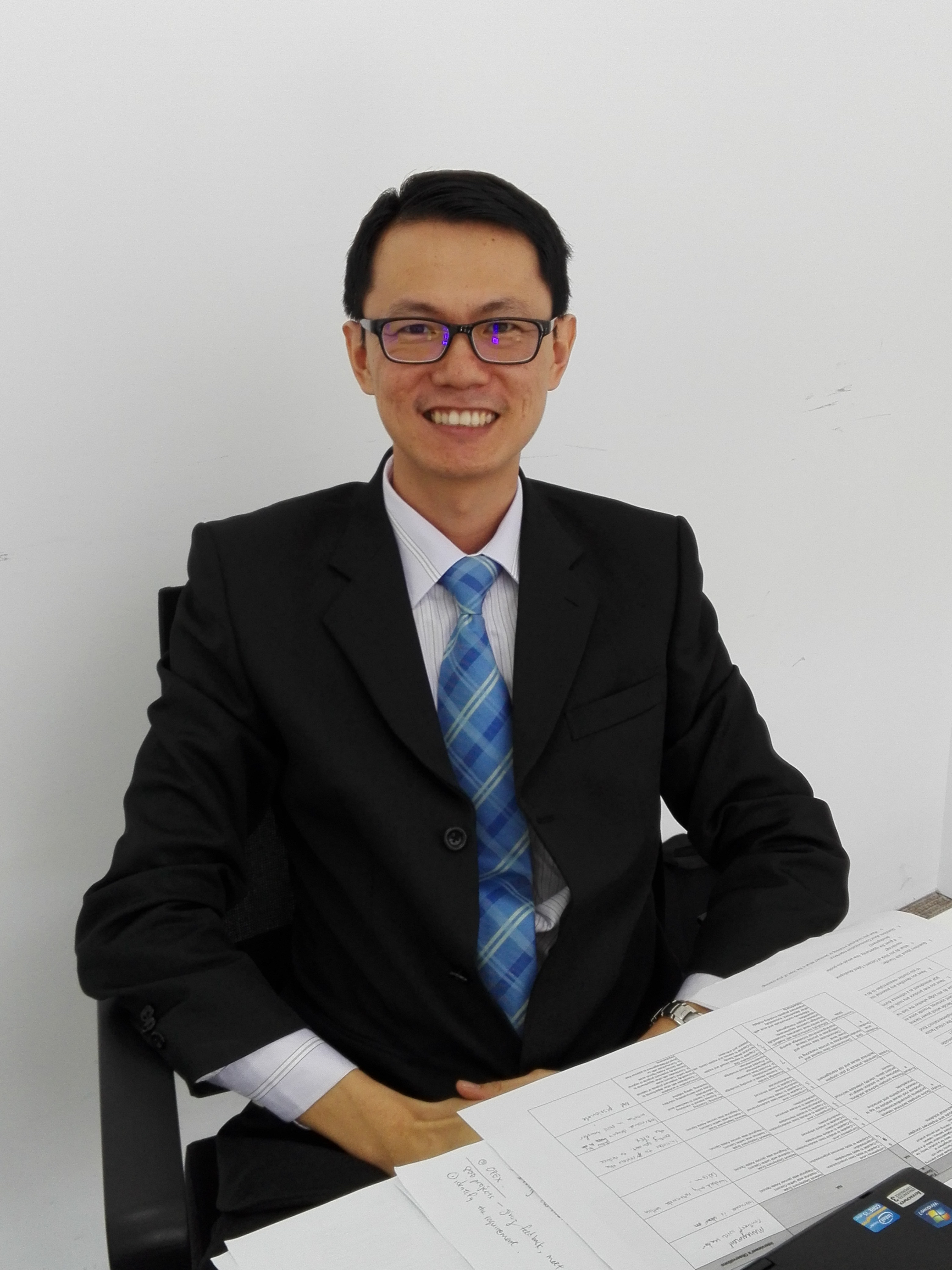

Dr Chua was selected to be the
co-researcher for NCKU SATU Programme
UTAR
Lee Kong
Chian Faculty of Engineering and Science Department of Electrical and
Electronic Engineering lecturer Dr Chua Kein Huat’s research project was one
of the twelve awarded projects in the 2021 NCKU Joint Research Programme
with Malaysia, Vietnam and Thailand. Additionally, Dr Chua was also selected
to be the co-researcher for NCKU SATU Programme.
The 2021 Joint
Research Programme provides a subsidy up to 12 merit projects. The awarded
teams must participate in the NCKU Overseas Week, scheduled to take place
from 8 - 12 November 2021 (subject to change).
Dr Chua’s
research project was led by a Professor from National Cheng Kung University
(NCKU), Prof Wang Li, who is also the principal investigator for the awarded
project. Other team members include NCKU Prof Lee Chien Hsing, UTAR LKC FES
doctoral student Bong Huey Lih and Dr Chua.
The awarded
project, titled “Stability Analysis of a Hybrid Renewable-energy System Fed
to a Multi-Machine Power System Using a Static Compensator Integrated with a
Flow Battery” aimed to study smoothness of power, effective energy storage,
and stability improvement of a large-scale hybrid renewable-energy system
fed to a multimachine power system using the designed damping controller at
the bidirectional DC/DC converter of the proposed static compensator
(STATCOM) integrated with a flow battery (FB) connected at the point of
common coupling (PCC) through a bidirectional DC/DC converter, a
bidirectional DC/AC inverter, and transmission lines.
Dr Chua said,
“When high-capacity renewable-energy systems are fed to a multimachine power
system through transmission lines, there will be large power variations and
negative impacts on the stability of the connected multimachine power
system. The main purpose of this research project is to study the
power-smooth characteristics, effective energy storage, and stability
improvement of a large-scale hybrid renewable-energy system fed to a
multimachine power system using a STATCOM with an FB. The research results
of this project can offer a reference for the strategy of power-smooth
characteristics, effective energy storage, and stability improvement when
high-capacity renewable energy power-generation systems are connected to
multimachine power systems.”
When asked
about how his project impacts the social, economic, academic development,
etc, Dr Chua shared, “This research project is linked to the SDG7 of the
United Nations’ Sustainable Development Goals (SDGs) - Affordable and Clean
Energy - The Challenge of Green Energy Development in Extreme Climates. It
aims to improve the stability of a large-scale hybrid renewable energy
system. The research results of this project can offer a reference for the
strategy of improving the overall performance of a large-scale hybrid
renewable energy system. This can facilitate the adoption of renewable
energy into the electrical grid and reduce carbon footprint.”
He enthused,
“Our main goal is to develop high-capacity clean or green energy sources –
hybrid renewable energy. When the large amount of electric power generated
by the high capacity hybrid renewable energy (as clean energy or green
energy) is delivered to the connected multimachine power system, the amount
of using fossil fuels such as petroleum, coal, and natural gas can be
significantly reduced while the threat to human health caused by
environmental pollution can also be further reduced.”
About 2021 NCKU Joint Research Programme with
Malaysia, Vietnam and Thailand
The National
Cheng Kung University (NCKU) has launched its Overseas Hubs in Malaysia,
Vietnam and Thailand to promote network with overseas enterprises,
governments and academic institutes in these three nations. With the aim to
further deepen the international research cooperation between NCKU and the
above-mentioned nations, and with the problem-solving strategy toward global
issues and challenges through interdisciplinary and international academic
energy integration and like-minded endeavours, the NCKU Overseas Hubs Office
had especially launched this Joint Research Programme.
![]()
Wholly owned by UTAR Education Foundation (200201010564(578227-M)) LEGAL STATEMENT TERM OF USAGE PRIVACY NOTICE